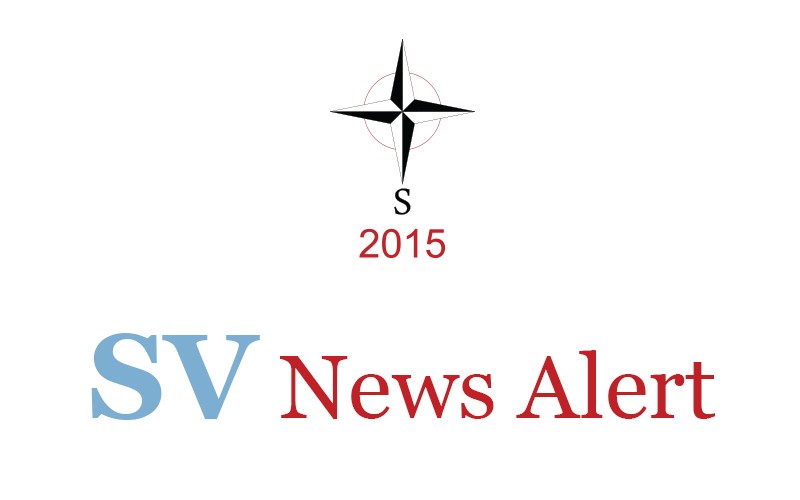Regional Cooperation on trade, climate change and food security in South Asia: Some reflections and way forward in Kathmandu, Nepal, 13-14 March 2014
A seminar on “Regional Cooperation on trade, climate change and food security in South Asia: Some reflections and way forward” was jointly organized by South Asia Watch on Trade, Economics and Environment (SAWTEE) with Oxfam and Swedish Standards Institute (SIS) on 13-14 March 2014. The major objective of the seminar was to discuss various topics related to trade, climate change and food security in South Asia. The seminar also highlighted the outcomes of the recently concluded Ninth Ministerial Meeting of the World Trade Organization, specifically on food security and trade facilitation agreement, and the need for regional cooperation in South Asia.
The inaugural session was led by Mr. Puspa Sharma, Research Director, SAWTEE. Addressing the inaugural session of the seminar, Dr. Dinesh Bhattarai, Advisor to the Prime Minister of Nepal, reiterated that increasing intra-regional trade is essential to accelerate economic growth in South Asia.
The first session titled “South Asian LDCs and trade facilitation agreement, with reference to Aid for Trade’ was chaired by Mr. Shanker Das Bairagi, Officiating Secretary, Ministry of Foreign Affairs, Government of Nepal. A keynote presentation was delivered by Dr Ratnakar Adhkari, Execuive Director, Enhanced Integrated Framework (EIF) and the discussants were Professor Mustafizur Rahman, Executive Director, CPD, Dhaka and Dr Nisha Taneja, Professor, Indian Council for Research on International Economic Relations (ICRIER), New Delhi.Dr Debapriya Bhattacharya, Distinguished Fellow, CPD chaired the second session titled “The 9th WTO Ministerial declaration on food security: Need for regional cooperation in South Asia” at the seminar. A presentation was also made by Dr. Posh Raj Pandey, Executive Chairman, SAWTEE. The discussants for this session were Ms. Robina Ather, Joint Secretary, Ministry of Commerce, Government of Pakistanand Dr. Simrit Kaur, Professor, Delhi University, New Delhi.
Ms Robina Akhter, Joint Secretary, Ministry of Commerce, Government of Pakistan chaired the third session titled ‘Operationalising the SAARC Food Bank.’ Dr Krishna P. Pant, Fellow, South Asian Network for Development and Environmental Economics (SANDEE), Kathamandu was the presenter for this session. Professor I. N. Mukherji, Consultant, UNESCAP, New Delhi and Mr Choni Dendup, Specialist-Agriculture, Marketing and Cooperatives, Ministry of Agriculture and Forests, Royal Government of Bhutan were the discussants.
The fourth session titled ‘Towards a South Asian Transit Agreement’ was chaired by Mr Purushottam Ojha, Former Secretary, Ministry of Commerce and Supplies, Government of Nepal. Dr Prabir De, Senior Fellow and Professor, Researcher and Information System for Developing Countries (RIS), New Delhi. The discussants were Mr Bipul Chatterjee, Deputy Executive Director, CUTS International, Jaipur, Dr Vaqar Ahmed, Deputy Executive Director, SDPI, Islamabad and Dr Selim Raihan, Professor,University of Dhaka.
The fifth session titled ‘Regional cooperation to address climate change impacts in South Asia’ was chaired by Mr Arvind Kumar, advisor, The Energy and Resources Institute (TERI), New Delhi. Mr Bishal Thapa, Co-founder, Saral Urja Nepa, Kathmandu made a keynote presentation for this session. The discussants for the session were Dr Fahmida Khatun, Research Director, CPD, Dhaka and Mr Nitya Nanda, Fellow, TERI, New Delhi.
The sixth session titled ‘Agriculture adaptation practices in South Asia: Learning from each other’ was chaired by Ms Ramani Ellepola, Former Director, Central Environment Authority of Sri Lanka, Colombo. The case of India was presented by Mr Tirthankar Mandal, Freelance Consultant, New Delhi and the case of Sri Lanka was presented by Mr Athula Seneratne, Research Fellow and Head, Environmental Economic Policy Research, IPS, Colombo. Dr Gautam Vohra, Chairman, Development Research and Action Group (DRAG), New Delhi, Mr Shafqat Munir, Regional Rights in Crisis Coordinator, Oxfam and Mr Rajju Malla Dhakal, Executive Director, South Asia Center for Policy Studies (SACEPS) were the three discussants for this session.The last session was titled ‘Trade promotion through standardization’ was chaired by Ms L Savithri, Director-Economic, Trade and Finance Division, SAARC Secretariat. Mr Indu Bikram Joshi, Under Secretary, Nepal Bureau of Standards and Metrology (NBSM), Kathmandu made keynote presentation. The discussants were Ms Akhtar Bughio, Director, Pakistan Standards and Quality Control Authority (PSQCA), Islamabad and Ms S Saroja, Coordinator, Citizen consumer and civic Action Group (CAG), Chennai.The closing session was led by Dr Posh Raj Pandey with remarks from Mr Scott Falia, Nepal-Country Director, Oxfam, Kathmandu.
Deconstructing South-South Cooperation: A South Asian Perspective in New Delhi, India, 27-28 March 2014.
Southern Voice on Post-MDGs launched an initiative captioned “Deconstructing South-South Cooperation: A South Asian Perspective” in an effort to explore the scope of South-South Cooperation and to clarify some of the experiences in South Asia in this region.
In this connection, the National Council of Applied Economic Research (NCAER), New Delhi and Centre for Policy Dialogue (CPD), Dhaka were partners of the SouthernVoice in organising an event in New Delhi, India during 27-28 March 2014.
Ms Sujata Mehta, Secretary (ER & DPA), Ministry of External Affairs, India delivered the introductory remarks at the opening session where she cautioned that developing countries should not be burdened with onerous responsibilities in the name of the need for deepening cooperation among the developing South.
Dr Shekhar Shah, NCAER chaired the first session titled ‘The Framework for South-South Cooperation, Modalities and Experience.’ Dr Fahmida Khatun, Director, CPD made the keynote presentation. The discussants for this session were Dr Saman Kelegma, Institute of Policy Studies (IPS), and Dr Sachin Chaturvedi, Research and Information System for Developing Countries (RIS). Dr Khatun noted that Southerneconomies have emerged as strong drivers of global growth. The paper mentions that the combined share of these economies has risen from about 25 per cent of world’s gross domestic product (GDP) in 1980 to 45 per cent in 2010. Developing Asia is on the forefront of achieving highest economic growth, with China and India being the two major contributors.
Professor Mustafizur Rahman, Executive Director, CPD, chaired the second session titled “The South Asian Experience with South-South Cooperation.” The presentations were made by Engineer Abdul Jabbar, SDPI, Islamabad and Dr Rajesh Chadha, NCAER. The discussants for this session were M. Ashraf Haidari, Afganistan Embassy, New Delhi, Dr Posh Raj Pandey, (SAWTEE), and Saman Kelegama, IPS.
Dr Posh Raj Pandey, SAWTEE chaired the third session titled ‘Role of South-South Cooperation in the Post 2015 International Development Agenda” while Syma Saran, RIS, New Delhi made opening remarks (by a video) followed by Dr Vaqar Ahmed, Deputy Executive Director at Sustainable Development Policy Institute (SDPI), Pakistan (also by a video). The panelists for this session were Lise Grande, UNDP, New Delhi and Dr Nagesh Kumar, ESCAP, New Delhi.
Dr Debapriya Bhattacharya, Chair of Southern Voice and CPD Distinguished Fellow chaired the last session titled “Integrating South-South Cooperation into the Global Partnership for Effective Development Co-operation (GPEDC).” HE Mr Jaime Nualart, Mexican Ambassador to India, New Delhi made keynote remarks, he informed the audience about the preparations and expectations as regards the high-level meeting on GPEDC. The panelists for the session were Professor Mustafizur Rahman, CPD, Dhaka and Dr Rani D Mullen, CPR, New Delhi.
Dr Bhattacharya called for developing an analytical framework (with theoretical postulates) to identify the basic principles, scope and modalities, instruments and triggers of South-South Cooperation.
1,766 total views, 1 views today





